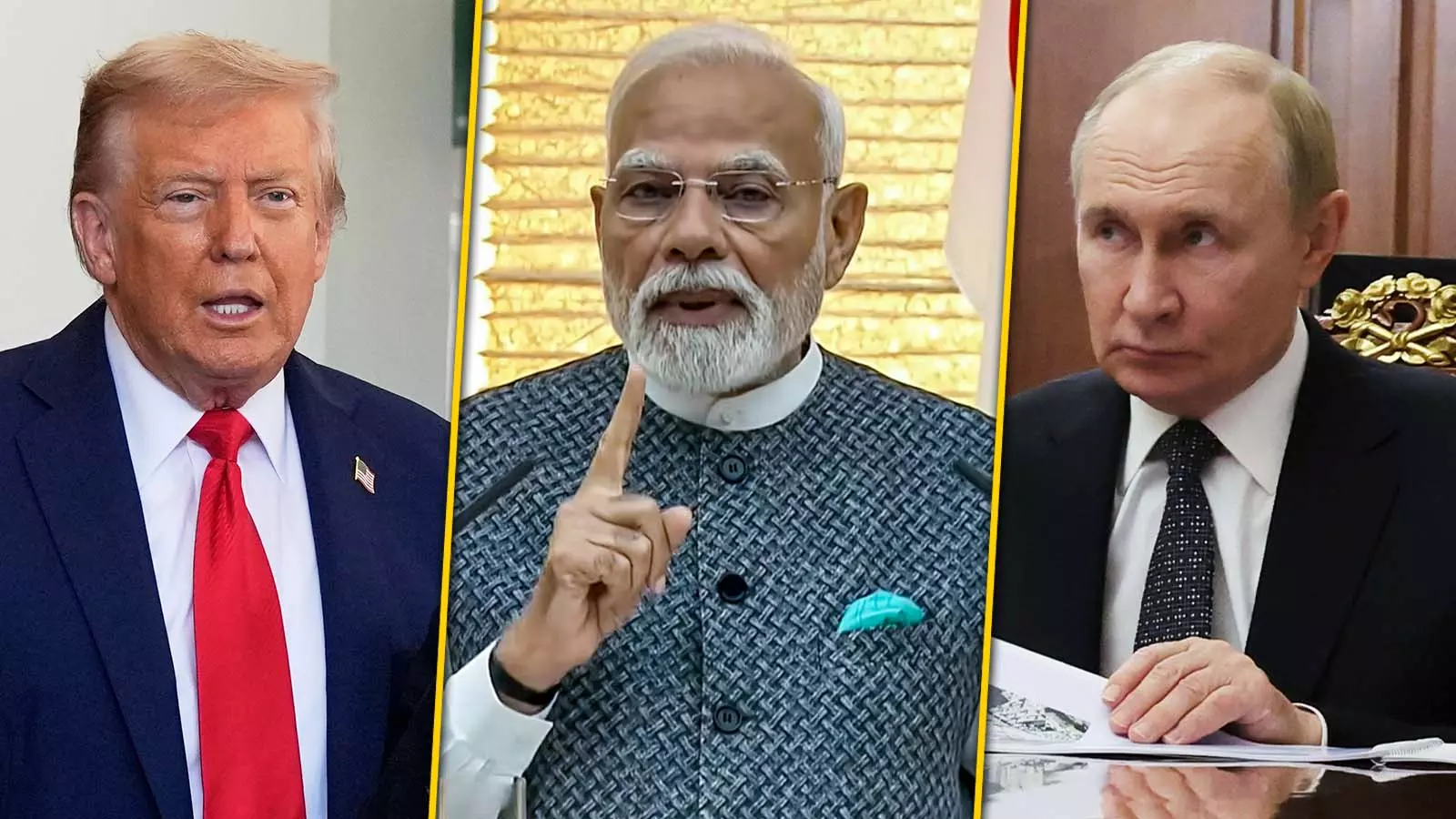
US sanctions on two of Russia’s biggest oil companies could affect India's crude import scenario.
US sanctions on Rosneft, Lukoil may impact Reliance's crude imports
Industry sources said while public-sector units are evaluating compliance risks, they are unlikely to immediately cease imports from Moscow

Sanctions imposed by the US against two of Russia’s biggest oil companies could impact the crude imports that Reliance Industries makes from Moscow. Stat-run refiners may, meanwhile, continue purchases through intermediary merchants.
According to industry sources, public-sector units are evaluating compliance risks; however, they are not expected to immediately cease imports of Russian crude, as they procure nearly all of their requirements from traders, predominantly European ones who are not affected by the sanctions.
Ambani's firm may have to adjust strategy
Reliance Industries Ltd, which is the largest purchaser of Russian crude oil in India, representing approximately 50 percent of the country’s 1.7 million barrels per day imported from Russia, may need to adjust its import strategy as it procures crude oil directly from Russia's Rosneft, the sources added.
Also read: US announces new sanctions against Russia’s two biggest oil companies
The company of billionaire Mukesh Ambani had, in December last year, inked a term deal with Russia's Rosneft — now sanctioned — to import 500,000 barrels per day of Russian oil for 25 years. It also buys oil from intermediaries.
The company did not immediately respond to an email sent for comments.
US accuses oil firms of funding Kremlin war
The US Department of the Treasury's Office of Foreign Assets Control (OFAC) imposed more sanctions on Open Joint Stock Company Rosneft Oil Company (Rosneft) and Lukoil OAO (Lukoil) — Russia’s two largest oil companies that the Donald Trump administration accuses of helping fund the Kremlin’s “war machine” in Ukraine.
Also read: India, US near trade deal; tariffs on Indian goods may fall to 15-16 pc: Report
The two companies together export 3.1 million barrels of oil per day. Rosneft alone is responsible for six per cent of global and nearly half of all Russian oil production.
India became the largest purchaser of Russian crude since Moscow's February 2022 invasion of Ukraine, capitalising on steep discounts that followed Western buyers’ withdrawal.
Russian oil is purchased both by private sector firms — Reliance Industries Ltd and Rosneft-backed Nayara Energy — and state-owned refiners Indian Oil Corporation (IOC), Bharat Petroleum Corporation Ltd (BPCL), Hindustan Petroleum Corporation Ltd (HPCL), Mangalore Refinery and Petrochemicals Ltd and HPCL-Mittal Energy Ltd (HMEL).
State-owned refiners do not have any term or fixed quantity deal with either Rosneft or Lukoil and typically buy Russian oil through tenders. In these tenders, oil traders, mostly European or ones based in Dubai and Singapore, who had purchased oil from Russian entities, participated.
Also read: Trump warns India: Stop buying Russian oil or continue paying 'massive tariffs'
These traders have not been sanctioned by the US, the sources said, adding European Union (EU) sanctions, too, had not targeted these traders.
And even if some traders shy away from picking Russian volumes, Moscow is capable of overnight resurrecting new ones with Dubai registration, sources said, adding these traders can buy oil from Russian firms and sell to refiners such as those in India and China.
“The measures by the Trump administration are 'half-hearted',” a source involved in the business said.
“For months, US President Donald Trump has resisted pressure from US lawmakers to impose energy sanctions, and even now, the ones who do the bulk of the trade are out of its net.”
Also read: India’s Russian oil imports rebound in October despite Trump’s claim
Another source said the markets are somehow not buying into Trump's latest sanctions.
"If sanctions were so impregnable, international oil prices would have jumped at least USD 5-10 per barrel on news of such large volumes going out of the market. Instead, what we saw was just a USD 2 per barrel increase, implying the market believes not all of the oil that is exported from Russia is going anywhere." Nayara Energy, in which Rosneft holds a 49.13 per cent stake, is the other big private sector buyer of Russian oil.
The company, which operates a 20 million tonnes a year oil refinery at Vadinar in Gujarat, has already been sanctioned by the EU, and it may have to recalibrate its purchases, sources said.
Also read: India says no call between Modi and Trump, refuting claim on Russian oil
Nayara did not respond to an email seeking comments.
Kesani Enterprises Company Limited — a consortium led by Mareterra and Russian investment group United Capital Partners (UCP) — holds another 49.13 per cent stake in Nayara.
No instruction from Modi govt so far
Sources said the Narendra Modi government has not so far given any instructions to refiners on stopping or reducing Russian oil imports.
They said Trump's recent comments on India agreeing to stop all purchases of Russian oil (with no such commitment being made by New Delhi) may have got to do with the European Union (EU) sanctions on the import of fuel made from Russian oil.
The EU has banned the import of fuels refined from Russian crude with effect from January 21 next year.
Reliance, whose one of the two refineries is only-for-export, refines Russian crude into fuels like petrol and diesel, some of which is exported to the EU.
(With Agency inputs)

